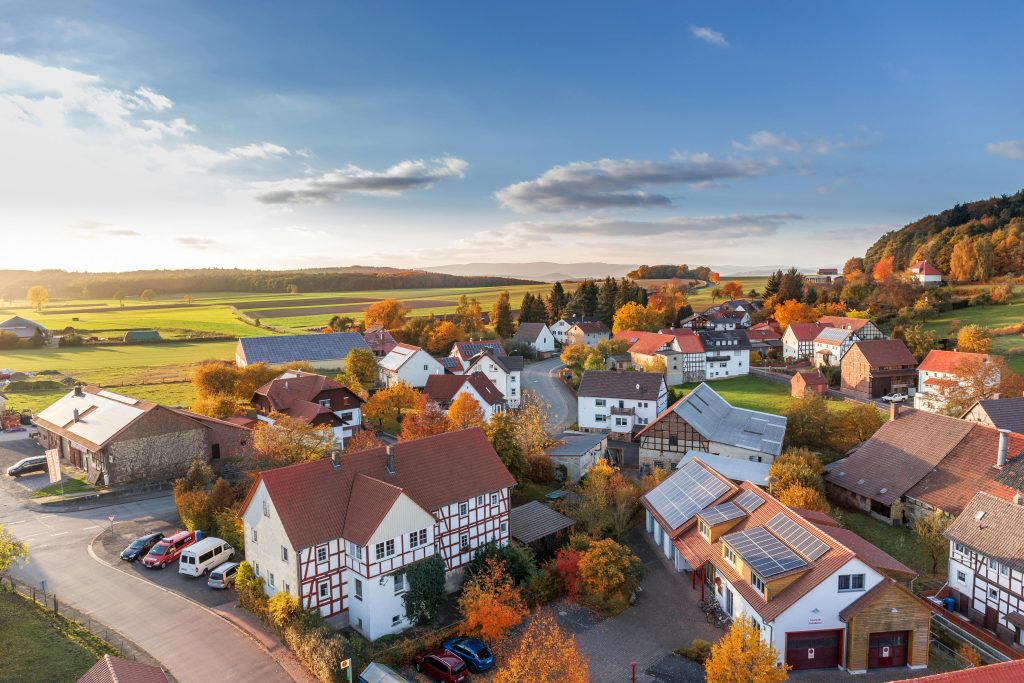How Much Income Do You Need to Retire in Ireland? A Comprehensive Guide
Retirement in Ireland is a significant milestone, and planning for it requires careful consideration of various factors, especially financial ones. If you’re thinking about retiring in Ireland, understanding the amount of income you’ll need is crucial. Ireland, with its picturesque landscapes, rich culture, and high standard of living, is an attractive destination for retirees. However, the cost of living can be high, and planning for a comfortable retirement requires thorough financial planning. This guide will delve into the details of how much income you need to retire in Ireland, covering living costs, healthcare, housing, and other essential expenses.
Table of Contents
Understanding the Cost of Living in Ireland
Ireland’s cost of living varies depending on the region. Dublin, the capital, is significantly more expensive than other parts of the country. Smaller towns and rural areas offer a lower cost of living but may lack some amenities found in urban areas. Here’s a breakdown of key expenses you’ll need to consider:

1. Housing Costs
Housing is typically the most significant expense. In Dublin, the average rent for a one-bedroom apartment in the city center is around €1,800 per month, while outside the city center, it’s approximately €1,500. In smaller towns, you can find a one-bedroom apartment for about €800 to €1,200 per month. If you plan to buy a property, prices also vary widely. The average price for a home in Dublin is about €500,000, whereas in other regions, it might be around €250,000 to €300,000.
For retirees, considering different housing options is vital. Some may prefer renting to avoid the responsibilities and costs of home maintenance, while others might choose to buy a smaller property or even downsize from their current home. Additionally, there are retirement villages and communities specifically designed for older adults, offering various services and amenities that can be attractive and cost-effective.

2. Utilities
Utility costs include electricity, heating, cooling, water, and garbage. On average, monthly utility bills in Ireland amount to approximately €150 to €200. Internet and mobile phone plans typically cost an additional €50 to €70 per month.
When planning your utility budget, consider energy-saving measures and modern appliances to reduce costs. The Irish government offers grants and incentives for home insulation and renewable energy installations, which can significantly lower your utility expenses in the long run.

3. Groceries and Dining
Groceries for a couple generally cost between €300 to €400 per month, depending on shopping habits and dietary preferences. Dining out is more expensive, with an average meal at a mid-range restaurant costing about €25 per person.
To manage grocery costs, retirees can take advantage of local farmers’ markets, discounts, and bulk buying options. Growing your own vegetables in a garden or allotment can also be a rewarding and cost-effective way to supplement your diet. When dining out, look for early bird specials or discounts for seniors that many restaurants offer.

4. Transportation
Public transportation in cities like Dublin is efficient but can be costly. A monthly public transport pass costs around €120. If you plan to drive, factor in the cost of fuel (about €1.80 per liter), insurance, maintenance, and road tax.
Many retirees prefer using public transportation to save on the costs and hassle of car ownership. Ireland has a well-connected public transport system, including buses, trains, and trams. Additionally, there are discounted travel schemes for older adults, such as the Free Travel Scheme for those aged 66 and over, which provides free travel on public transport and certain private services.

5. Healthcare
Healthcare in Ireland is of high quality, but it can be expensive without proper insurance. Public healthcare is available but often involves long waiting times. Private health insurance is recommended for quicker access and better service, costing about €1,500 to €2,500 annually per person.
Ireland’s healthcare system includes both public and private sectors. The public system, known as the Health Service Executive (HSE), provides services at little or no cost, but waiting times can be lengthy. Private health insurance offers faster access and more options for treatments and specialists. Many insurance companies offer plans specifically tailored to retirees, covering a wide range of services, including preventative care, chronic disease management, and mental health services.
Estimating Your Retirement Income Needs
Now that we’ve covered the basic expenses, let’s estimate how much income you’ll need to retire comfortably in Ireland. This will vary based on your lifestyle, location, and personal preferences. Let’s break down the expenses into essential categories and consider a comfortable lifestyle.
Basic Monthly Expenses (Living in rural/semi-urban area)
- Housing: €1,500 (average rent in a mid-sized town)
- Utilities: €200
- Groceries: €350
- Transportation: €120
- Healthcare: €200 (monthly cost of private health insurance)
- Miscellaneous: €300 (entertainment, dining out, clothing, etc.)
Total basic monthly expenses: €2,670
Annual Expenses(Living in rural/semi-urban area)
- Basic monthly expenses: €2,670 x 12 = €32,040
- Additional healthcare costs: €500 (for medications, occasional visits, etc.)
- Travel: €2,000 (annual budget for travel and vacations)
Total annual expenses: €34,540
Basic Monthly Expenses (Living in urban area)
- Housing: €2,000
- Utilities: €250
- Groceries: €400
- Transportation: €150
- Healthcare: €200 (monthly cost of private health insurance)
- Miscellaneous: €400 (entertainment, dining out, clothing, etc.)
Total basic monthly expenses: €3,400
Annual Expenses(Living in urban area)
- Basic monthly expenses: €3,400 x 12 = €40,800
- Additional healthcare costs: €500 (for medications, occasional visits, etc.)
- Travel: €2,000 (annual budget for travel and vacations)
Total annual expenses: €43,300

Sources of Retirement Income
To meet your estimated annual expenses, you’ll need to consider your sources of retirement income. These may include:
1. State Pension
As of 2024, the State Pension (Contributory) in Ireland is approximately €253 per week (€13,156 per year). If both you and your spouse qualify, this amount doubles to €26,312 per year.
The state pension eligibility depends on your social insurance contributions throughout your working life. Ensuring you meet the contribution requirements before retirement is crucial. If you fall short, consider making voluntary contributions or evaluating other pension schemes available.
2. Private Pensions and Savings
Private pensions, savings, and investments will need to supplement the state pension. If you have a private pension, calculate the annual income it will provide. For example, if you have a pension pot of €500,000, assuming a 4% annual withdrawal rate, this would provide €20,000 per year.
It’s essential to review your pension plans regularly to ensure they are on track to meet your retirement goals. Consider consulting a financial advisor to optimize your pension investments and explore options like annuities, which can provide a guaranteed income for life.
3. Additional Income Sources
Consider other potential income sources such as rental income, part-time work, or income from investments. Rental income can be particularly beneficial if you own property.
Part-time work during retirement is an option many consider to stay active and supplement their income. Whether it’s freelance work, consultancy, or pursuing a passion project, earning additional income can significantly enhance your financial security.

Creating a Retirement Budget
A detailed retirement budget will help you manage your finances effectively. Here’s a sample budget for a couple planning to retire in a mid-sized town in Ireland:
Monthly Budget
- Housing: €1,500
- Utilities: €200
- Groceries: €350
- Transportation: €120
- Healthcare: €200
- Miscellaneous: €300
Total monthly expenses: €2,670
Annual Budget
- Basic expenses: €2,670 x 12 = €32,040
- Healthcare: €500
- Travel: €2,000
Total annual expenses: €34,540
This also increases to €43,300 if you’re planning to settle in an urban area like Dublin.

Adjusting for Inflation
Inflation can erode your purchasing power over time. It’s essential to account for this in your retirement planning. A common approach is to assume a 2% to 3% annual inflation rate. To maintain your standard of living, you’ll need to increase your income accordingly.
For example, if you need €34,540 in your first year of retirement, with a 2% inflation rate, you’ll need approximately €35,231 in the second year, and so on. If you are living in an urban area, you need €43,300 in your first year of retirement, with a 2% inflation rate, you’ll need approximately €44,166 in the second year, and so on. Over a 20-year retirement period, this can significantly impact your income requirements, so it’s vital to adjust your investment strategies to keep pace with inflation.
However, please note that 2% is a minimum inflation rate considered above and you may need to consider some additional value while making calculations. For instance, the inflation rate for the Republic of Ireland in May 2024 was 2.6 percent.
Ensuring Financial Security
To ensure financial security during retirement, consider the following strategies:
1. Diversify Your Investments
Diversifying your investments can protect you against market volatility. Include a mix of stocks, bonds, real estate, and other assets in your portfolio.
Diversification reduces risk and can improve returns over the long term. Regularly review and rebalance your portfolio to maintain the desired level of risk and return, considering changes in market conditions and personal circumstances.
2. Maintain an Emergency Fund
An emergency fund can cover unexpected expenses such as medical emergencies or home repairs. Aim to save at least 6 to 12 months’ worth of living expenses.
An emergency fund provides a financial cushion and peace of mind, ensuring that unforeseen events do not derail your retirement plans. Keep these funds in easily accessible, low-risk accounts.
3. Review and Adjust Your Plan
Regularly review your retirement plan and adjust it as necessary. Monitor your expenses, investment performance, and any changes in your financial situation.
Life circumstances and financial markets change, so it’s important to adapt your plan accordingly. Schedule annual reviews with a financial advisor to stay on track and make necessary adjustments.
4. Seek Professional Advice
Consider consulting a financial advisor to help you create a comprehensive retirement plan. They can provide personalized advice based on your financial goals and situation.
A financial advisor can help you navigate complex financial decisions, optimize your investments, and ensure you’re making the best choices for your retirement. Look for advisors who specialize in retirement planning and have a fiduciary responsibility to act in your best interest.

Health and Well-being in Retirement
Maintaining good health is crucial for an enjoyable retirement. Here are some tips to stay healthy and active:
1. Stay Physically Active
Regular physical activity is essential for maintaining health and mobility. Consider activities like walking, swimming, or joining local fitness classes. Many communities offer programs specifically designed for older adults.
2. Eat a Balanced Diet
A nutritious diet is vital for overall health. Focus on a balanced diet rich in fruits, vegetables, whole grains, and lean proteins. Ireland offers an abundance of fresh produce and local food markets, making healthy eating accessible.
3. Stay Socially Connected
Social connections play a significant role in mental and emotional well-being. Engage in community activities, join clubs, or volunteer to stay connected and build a support network.
4. Pursue Hobbies and Interests
Retirement is an opportunity to explore new hobbies and interests or dedicate more time to existing ones. Whether it’s gardening, painting, or learning a new skill, staying engaged and mentally stimulated is important.

Frequently Asked Questions FAQs on “How much income do you need to retire in Ireland”:
- What is the average cost of living for retirees in Ireland?
- The average cost of living for retirees in Ireland varies by location but generally ranges from €2,500 to €3,500 per month, covering housing, utilities, groceries, and other essential expenses.
2. How much does housing cost for retirees in Ireland?
- Housing costs vary widely. Renting a one-bedroom apartment can cost between €1,500 and €2,000 per month, depending on the region. Buying a home typically ranges from €250,000 to €700,000.
3. What are the healthcare costs for retirees in Ireland?
- Public healthcare is available but may involve long wait times. Private health insurance, which is recommended for quicker access, costs about €1,500 to €2,500 annually per person.
4. How much should I budget for groceries and dining out in Ireland?
- Groceries for a couple generally cost between €300 to €400 per month. Dining out is more expensive, with an average meal at a mid-range restaurant costing about €25 per person.
5. What transportation options and costs should retirees consider?
- Public transportation costs about €120 per month. If you own a car, consider costs for fuel (€1.50 per liter), insurance, maintenance, and road tax.
6. How does the State Pension contribute to retirement income in Ireland?
- The State Pension (Contributory) in Ireland is approximately €253 per week (€13,156 per year). If both partners qualify, this amount doubles to €26,312 per year.
7. What role do private pensions and savings play in retirement income?
- Private pensions and savings are essential to supplement the state pension. For instance, a pension pot of €500,000 with a 4% annual withdrawal rate provides €20,000 per year.
8. How can I ensure my retirement income keeps pace with inflation?
- Account for a 2-3% annual inflation rate in your retirement plan. Adjust your investment strategies and regularly review your financial situation to maintain purchasing power.
9. What strategies can help ensure financial security in retirement?
- Diversify investments, maintain an emergency fund, regularly review and adjust your retirement plan, and seek professional financial advice to ensure financial security.
10. Are there additional income sources retirees can consider in Ireland?
- Yes, additional income sources such as rental income, part-time work, or income from investments can significantly enhance financial security during retirement.
Conclusion
Retiring in Ireland can be a fulfilling and enjoyable experience, but it requires careful financial planning. Understanding the cost of living and estimating your income needs are crucial steps in this process. By considering housing, utilities, groceries, transportation, healthcare, and other expenses, you can create a detailed retirement budget.
Supplementing the state pension with private pensions, savings, and other income sources is essential to meet your financial needs. Additionally, accounting for inflation and ensuring financial security through diversification, an emergency fund, and professional advice will help you enjoy a comfortable retirement in Ireland.
Remember, each person’s retirement needs are unique. Tailor your retirement plan to your lifestyle, preferences, and financial situation to achieve the best possible outcome. With the right preparation, you can look forward to a happy and stress-free retirement in the beautiful country of Ireland. Stay active, engaged, and proactive in your planning to make the most of your golden years.
By following these guidelines and regularly reviewing your financial situation, you can ensure a secure and enjoyable retirement in Ireland, allowing you to fully appreciate everything this wonderful country has to offer.








Your article helped me a lot, is there any more related content? Thanks!